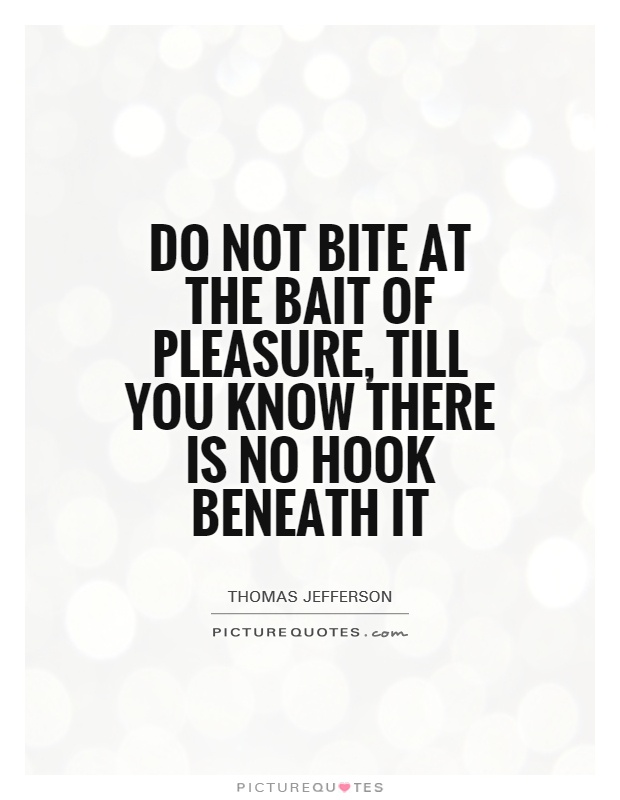Do not bite at the bait of pleasure, till you know there is no hook beneath it

Do not bite at the bait of pleasure, till you know there is no hook beneath it
Thomas Jefferson, the third President of the United States and one of the Founding Fathers, was a man of great wisdom and foresight. He understood the importance of being cautious and not falling for the temptations of pleasure without considering the consequences. His famous quote, "Do not bite at the bait of pleasure, till you know there is no hook beneath it," reflects his belief in being mindful and thoughtful in one's actions.Jefferson was a man of many talents and interests, but he was also known for his discipline and self-control. He believed in living a life of virtue and integrity, and he understood that indulging in fleeting pleasures could lead to long-term consequences. By cautioning against biting at the bait of pleasure without knowing what lies beneath, Jefferson was reminding people to be mindful of their actions and to consider the potential risks involved.
In the context of Jefferson's own life, this quote can be seen as a reflection of his own personal philosophy. Jefferson was a man who valued reason and logic, and he believed in making decisions based on careful consideration and reflection. He was not one to act impulsively or recklessly, and he understood the importance of weighing the potential risks and rewards of any given situation.
Throughout his life, Jefferson faced many challenges and obstacles, but he always approached them with a sense of caution and prudence. He understood that the pursuit of pleasure could often lead to unforeseen consequences, and he was always mindful of the potential pitfalls that lay ahead. By following his own advice and not biting at the bait of pleasure without knowing what lies beneath, Jefferson was able to navigate the complexities of his time with grace and wisdom.












 Friendship Quotes
Friendship Quotes Love Quotes
Love Quotes Life Quotes
Life Quotes Funny Quotes
Funny Quotes Motivational Quotes
Motivational Quotes Inspirational Quotes
Inspirational Quotes